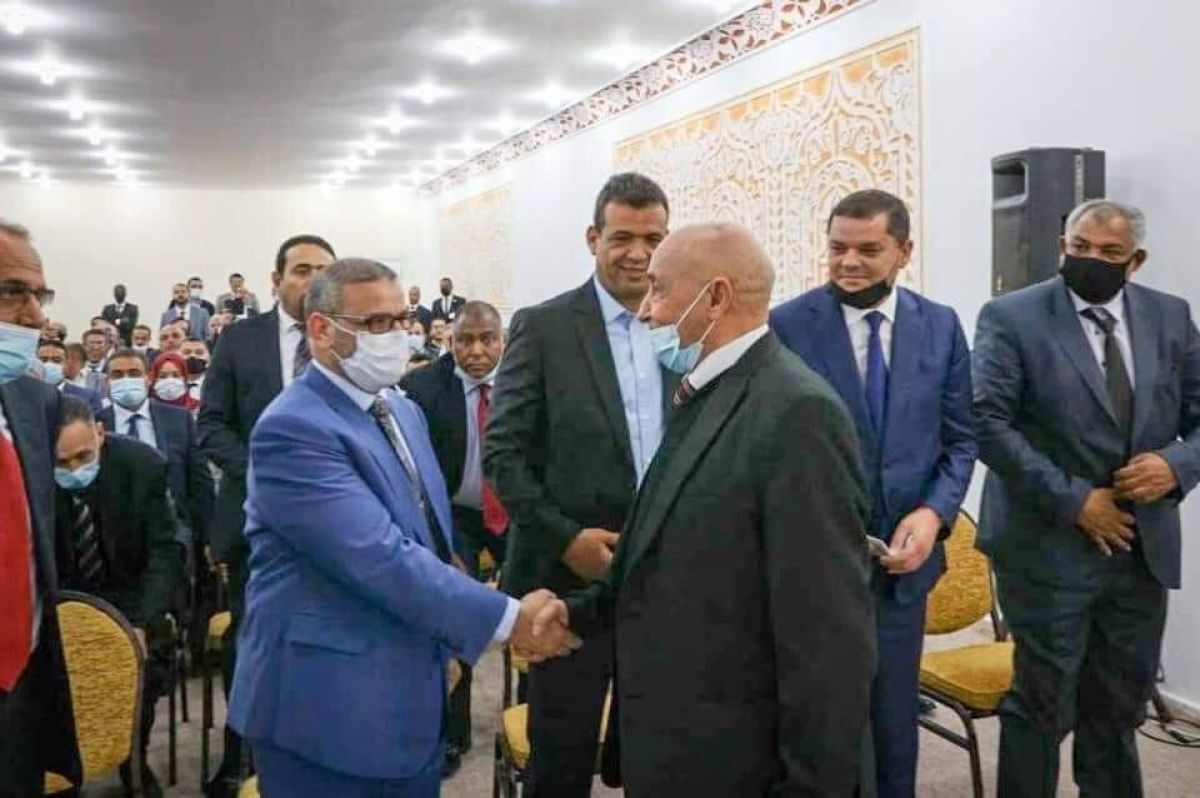Aguila Saleh: “Al-Meshri did not abide by the Bouznika agreement regarding sovereign positions and the unification of the executive authority, and we will not accept being at the mercy of the State Consultative Council or others”

The Speaker of the House of Representatives, Aguila Saleh, said during a televised statement that the head of the High Council of State, Khaled Al-Meshri, did not abide by Bouznika’s agreement regarding sovereign positions and the unification of the executive authority, and we will not accept to be at the mercy of the State Consultative Council or any others. There are no deeds on its part, and there must be a consensus with him for the benefit of the Libyan people.
Aguila stressed that the constitutional document is not the only source of the constitutional basis, and that people must hold a referendum on the draft constitution, as it is the only one that adopts the country’s constitution.
Aguila explained that the House of Representatives sent seven files for sovereign positions to the State Council, and they have not been answered to this moment, in addition to that the Council issued all the requirements entrusted to it to complete the elections.
Aguila added during his statement that the Presidential Council has become affiliated with the outgoing government, as he said, and that it did not carry out its tasks and did not conduct elections and national reconciliation, which are at the core of its work, stressing that, Al-Manfi, the Speaker of the Council was informed that the legitimate government is the one approved by the House of Representatives, and that the government’s work from Tripoli means that it will be at the mercy of the armed groups, which is unacceptable.
Aguila Saleh also made it clear that the elections are not an end but rather a means to establish stability in the country and the elections must be under one government, stressing that the constitutional declaration is the legal basis for the authority to end the existing political debate and elections can be held based on it and a certain period has been set in the House of Representatives, “and if it is exceeded, we will prepare a constitutional rule.”
Aguila indicated that the High Electoral Commission announced force majeure and it was impossible to hold elections, and so far it has not indicated what this force majeure is, adding that the opportunity to create a new government still exists and there is a proposal submitted to the UN mission on the mechanisms for forming the new government.
He added that the UN mission must clarify the parties obstructing the electoral process, as there are external conspiracies in order to disrupt the solution and prolong the life of the crisis in Libya, and some of them do not want the crisis in the country to end.
Aguila explained that the governor of the Central Bank of Libya, Seddiq Al-Kabeer, was dismissed by the House of Representatives before the political agreement, and that its continuation came with external support.



